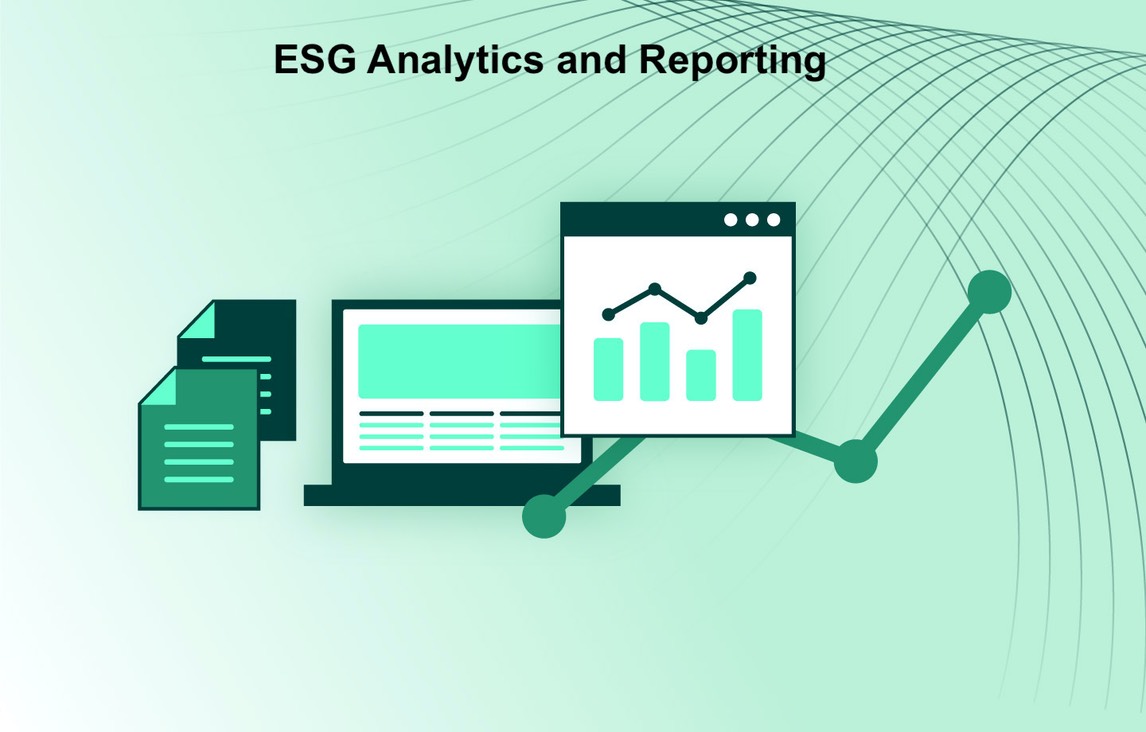
Learn about ESG Analytics and Reporting, its uses, products, advantages, and which businesses benefit from implementing it.
ESG Analytics and Reporting is an emerging field that focuses on analyzing and reporting a company's environmental, social, and governance (ESG) performance. It has gained popularity in recent years as businesses and investors become more aware of the importance of sustainability and responsible investing. In this blog post, we will discuss what ESG Analytics and Reporting are, their uses and applications, the products available and their advantages and disadvantages, and which businesses benefit from implementing this.
What is ESG Analytics and Reporting?
ESG Analytics and Reporting is the process of collecting, analyzing, and reporting data on a company's environmental, social, and governance practices. This data is used to evaluate a company's sustainability performance and its impact on society and the environment. ESG Analytics and Reporting provide investors, customers, and other stakeholders with insight into a company's sustainability practices and help them make informed decisions.
Uses and Applications
ESG Analytics and Reporting have several uses and applications. Firstly, it provides investors with information that helps them make informed investment decisions. Investors are increasingly interested in investing in companies that are sustainable and socially responsible. ESG Analytics and Reporting help investors identify such companies and evaluate their sustainability performance.
Secondly, ESG Analytics and Reporting provide companies with a framework for improving their sustainability performance. By collecting and analyzing data on their ESG practices, companies can identify areas where they need to improve and take steps to do so. ESG Analytics and Reporting also help companies identify best practices in sustainability and adopt them.
Thirdly, ESG Analytics and Reporting help companies build trust with their stakeholders. By reporting on their ESG performance, companies demonstrate their commitment to sustainability and social responsibility. This helps build trust with customers, investors, and other stakeholders.
Products Available and their Advantages and Disadvantages
There are several ESG Analytics and Reporting products available in the market. These include sustainability rating agencies, ESG data providers, and ESG reporting frameworks. Each product has its advantages and disadvantages.
Sustainability rating agencies provide ratings and rankings of companies' sustainability performance. These ratings are based on a company's ESG practices, as well as other factors such as industry trends and regulatory compliance. The advantage of using sustainability rating agencies is that they provide an independent assessment of a company's sustainability performance. However, the disadvantage is that the ratings may not accurately reflect a company's sustainability practices, as they are based on a limited set of criteria.
ESG data providers collect and analyze data on companies' ESG practices. They provide this data to investors, companies, and other stakeholders. The advantage of using ESG data providers is that they provide a comprehensive picture of a company's sustainability performance. However, the disadvantage is that the data may be difficult to interpret and may not be standardized.
ESG reporting frameworks provide guidelines for companies to report on their ESG performance. The advantage of using ESG reporting frameworks is that they provide a standardized framework for reporting on sustainability performance. However, the disadvantage is that the guidelines may be complex and difficult to implement.
Which Businesses Benefit from Implementing ESG Analytics and Reporting?
ESG Analytics and Reporting benefits businesses of all sizes and industries. Companies that implement ESG Analytics and Reporting can improve their sustainability performance, build trust with their stakeholders, and attract investors who are interested in socially responsible investing. Companies that operate in industries with a high environmental or social impact, such as oil and gas, mining, and agriculture, may benefit particularly from implementing ESG Analytics and Reporting.
Conclusion
ESG Analytics and Reporting are important tools for evaluating a company's sustainability performance and its impact on society and the environment. It provides investors, customers, and other stakeholders with insight into a company's sustainability practices and helps them make informed decisions. There are several ESG Analytics and Reporting products available in the market, each with its advantages.